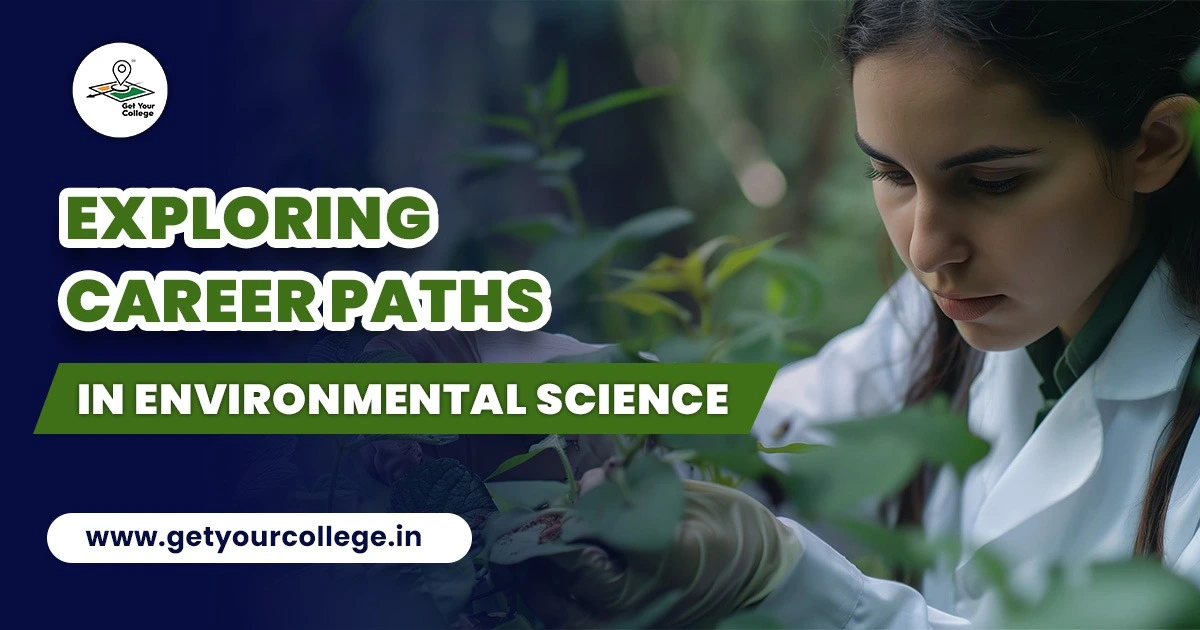People are finally realizing how much we’ve been affecting the Earth. Because of this, environmental science has become a really important job for making sure we take care of our planet. The cool thing is, there are tons of ways to be an environmental scientist! Some scientists go on adventures outside to clean up lakes and rivers. Others wear lab coats and study how to keep our air healthy. This article will show you all the different paths you can take as an environmental scientist, because no matter what you like to do, there’s a way to help the Earth!
Environmental science is like a mix of many different subjects, so you can learn about biology, chemistry, and even weather patterns. This lets environmental scientists tackle problems from all angles. You could be a wildlife biologist who studies how to protect endangered species. Maybe you’re good at solving puzzles? Then environmental engineering might be perfect for you, where you’d design ways to clean up pollution or create renewable energy sources.
Environmental Research and Conservation:
Conservation Scientist
Conservation scientists are the champions of biodiversity. Their mission is to safeguard natural resources and the incredible variety of life on Earth. They wear many hats, developing conservation plans that protect endangered species and their habitats. They might manage protected areas like national parks, ensuring they remain havens for wildlife. Collaboration is key in their work, as they partner with communities, businesses, and policymakers to promote sustainable practices that benefit both people and the planet.
Wildlife Ecologist
Ever wondered why some animals migrate long distances or how they find food in vast ecosystems? Wildlife ecologists delve into the fascinating world of animal behavior. They study the distribution of wildlife populations, how population numbers change over time, and the factors that influence these dynamics. Their research informs habitat restoration projects, helps manage wildlife populations for long-term sustainability, and even utilizes genetics to understand animal migration patterns. Wildlife ecologists play a vital role in ensuring healthy wildlife populations and the ecosystems they depend on.
Environmental Policy and Advocacy:
Environmental Policy Analyst
Environmental policy analysts are the strategists behind environmental regulations. An environmental policy analyst would research its effectiveness, considering factors like cost, impact on businesses, and the overall reduction in pollution. They advocate for sustainable practices by proposing and analyzing policies that promote clean energy, resource conservation, and pollution reduction. These analysts can work for government agencies at local, state, or federal levels, advising on environmental legislation. They may also find themselves in non-profit organizations or consulting firms, providing expertise to companies or policymakers seeking to implement sustainable practices.
Environmental Lawyer
They specialize in legal matters entwined with environmental protection and natural resource management. Imagine a company polluting a river. An environmental lawyer might represent a community impacted by the pollution, ensuring the company is held accountable and cleans up the mess. They also advise businesses and organizations on ensuring compliance with environmental regulations. Environmental justice is another key focus, advocating for fair treatment for all communities regarding environmental issues. Environmental lawyers typically work for law firms specializing in environmental law, or for government agencies or public interest organizations.
Environmental Education and Outreach:
Environmental Educator:
Environmental educators develop programs that teach people of all ages about the environment. They might work in schools, museums, or nature centers, leading hands-on activities and fostering a sense of environmental stewardship.
Sustainability Coordinator:
Businesses and organizations can become greener too! Sustainability coordinators work within companies to reduce their environmental impact. They create plans to conserve resources, conduct audits to identify areas for improvement, and educate staff on sustainable practices.
Environmental Communicator:
Science is powerful, but it needs a translator! Environmental communicators use various media, like writing articles, making films, or managing social media, to translate complex scientific research and environmental news into engaging content for the public. They bridge the gap between science and society, raising awareness and inspiring action.
Environmental Consulting and Technology:
Environmental Consultant
Think of them as environmental troubleshooters! Consultants provide expertise on environmental assessments, remediation projects, and regulatory compliance. They work with clients across industries, helping them navigate environmental regulations and minimize environmental risks. Imagine a construction company needing to assess the land for potential contamination before building. An environmental consultant would conduct tests, analyze the results, and advise on any necessary cleanup.
Renewable Energy Specialist
Renewable energy specialists are the champions of a greener future. They focus on developing and implementing renewable energy projects, like solar, wind, or hydroelectric power. They might work for energy companies, engineering firms, or government agencies, all pushing for sustainable energy solutions. Imagine a specialist working on a wind farm project. They would assess wind patterns, design the turbine layout, and ensure the project complies with environmental regulations.
Environmental Data Analyst
Data is king in environmental science! Environmental data analysts collect, analyze, and interpret environmental data to support decision-making. They use powerful tools like statistics, GIS software, and modeling techniques to assess environmental trends, forecast impacts, and inform policy initiatives. Imagine an analyst studying air quality data. They would analyze pollution levels, identify trends, and predict potential health risks, informing policymakers on necessary regulations.
Conclusion:
The world around us needs help, and environmental science is a super important way to fix it! There are many ways to be an environmental scientist, some jobs are outside like studying animals, others are inside making rules for clean air. No matter what you like to do, there’s a way to use your skills to help the Earth! Environmental science lets you learn about lots of things like animals, plants, and even weather. This lets you solve problems in different ways. Do you love animals? Be a wildlife biologist! Good at puzzles? Maybe try environmental engineering to clean up pollution or create clean energy. You can even work inside making rules to keep our environment healthy! So, if you’re looking for a job that helps the planet, environmental science might be perfect for you!Top of Form



